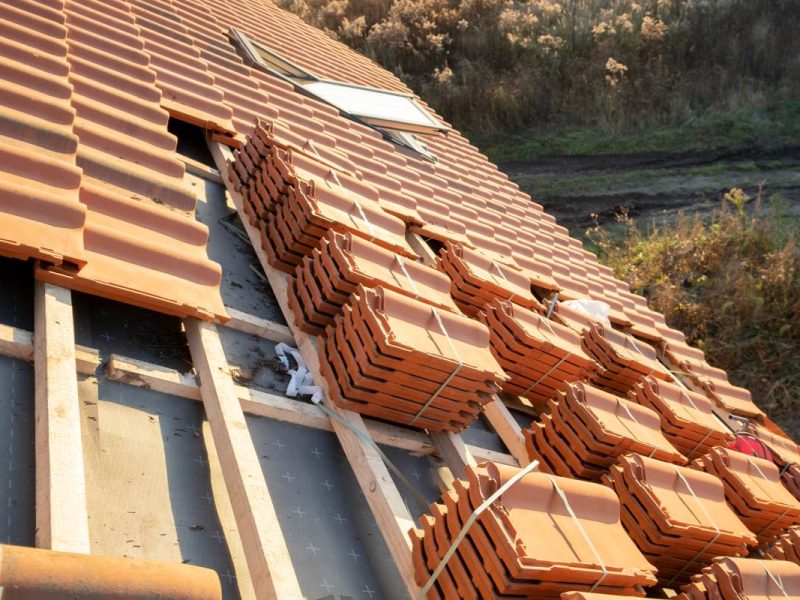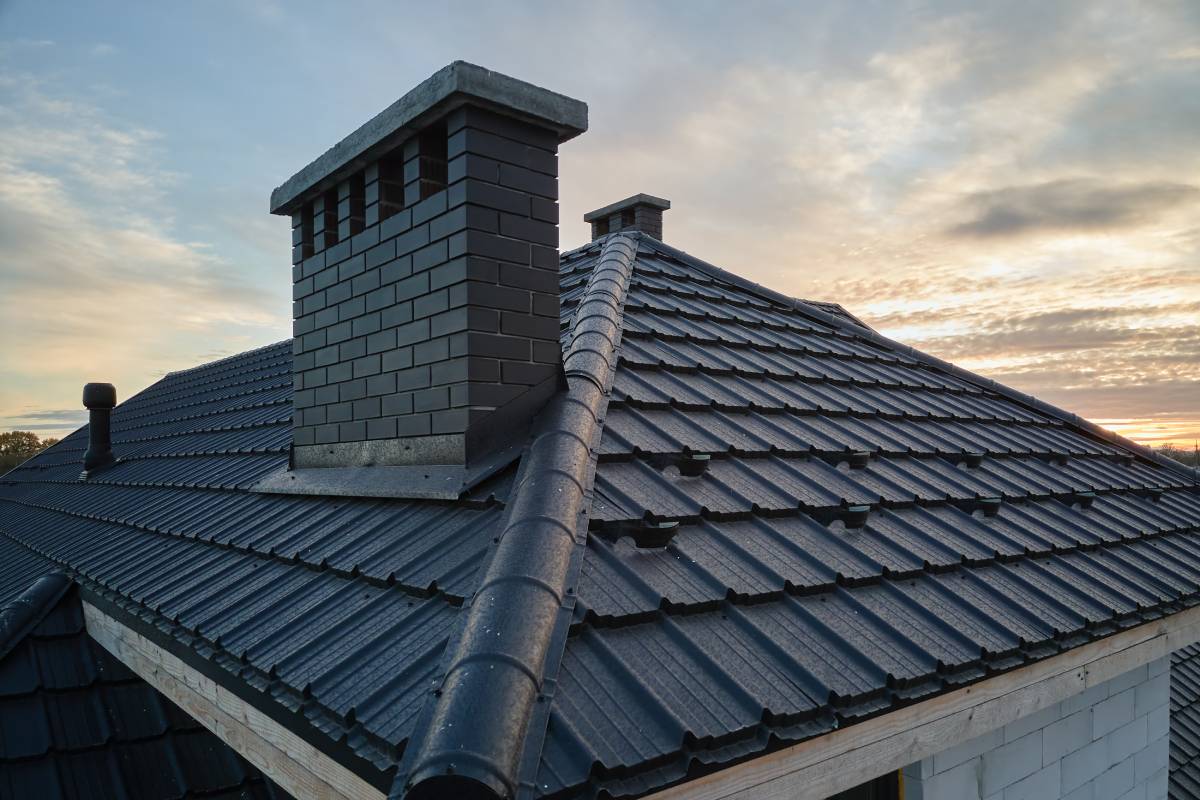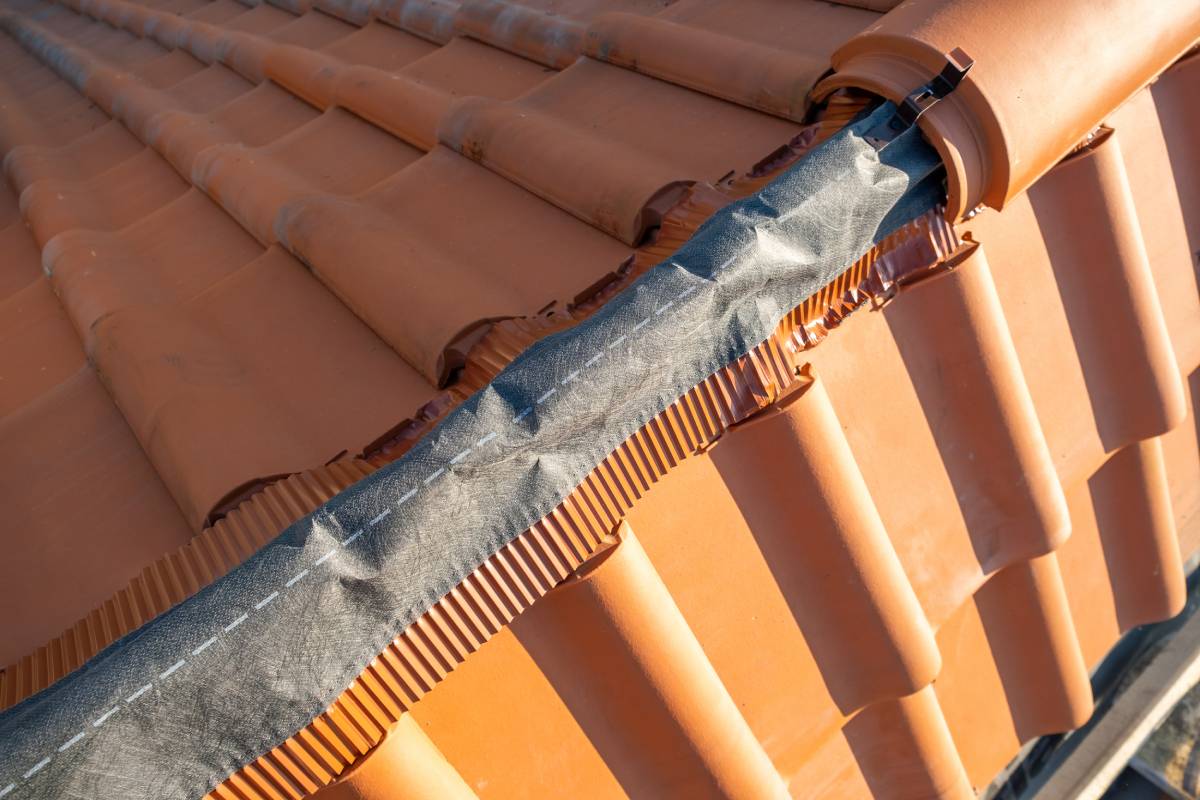Which tile is best for roof?
One popular option for roofing is asphalt shingles. These are widely used due to their cost-effectiveness and ease of installation. Asphalt shingles come in various styles and colors, allowing homeowners to customize the look of their roofs. They are durable and can withstand various weather conditions. However, they may have a shorter lifespan compared to some other materials.
Another commonly used roofing material is concrete tiles. These tiles are known for their durability and resistance to fire and insects. Concrete tiles come in different shapes and styles, providing flexibility in design. They are relatively low-maintenance and can last for several decades. However, they are heavier than asphalt shingles, so it’s essential to ensure that your roof structure can support the weight.
Clay tiles are a classic and aesthetically pleasing option. They are known for their distinctive reddish-brown color and durability. Clay tiles have excellent thermal performance, helping to keep your home cool in hot weather. However, they can be more expensive than other options, and their weight may require additional roof support.
For a natural and eco-friendly choice, consider wooden shakes or shingles. Wood roofing provides a charming, rustic appearance and is an excellent insulator. However, wood is susceptible to fire and may require regular maintenance to prevent rot and decay. It’s essential to check local building codes, as some areas have restrictions on the use of wood roofing due to fire concerns.
Metal roofing has gained popularity for its longevity and energy efficiency. It is lightweight, making it suitable for a variety of roof structures. Metal roofs are resistant to fire, rot, and insects, making them a low-maintenance option. They also reflect sunlight, reducing the heat absorbed by the building and contributing to energy savings.
When choosing the best tile for your roof, consider your budget, climate, and the architectural style of your home. It’s advisable to consult with a roofing professional to assess your specific needs and make personalized recommendations. Additionally, ensure that the chosen material complies with local building codes and regulations.
In conclusion, the best roof tile for your home depends on various factors, including your budget, climate, and aesthetic preferences. Asphalt shingles are cost-effective and easy to install, while concrete tiles offer durability and resistance to the elements. Clay tiles provide a classic look with excellent thermal performance, and wooden shakes offer a natural and charming appearance. Metal roofing is a long-lasting and energy-efficient option. Consulting with a roofing professional will help you make an informed decision based on your unique requirements.
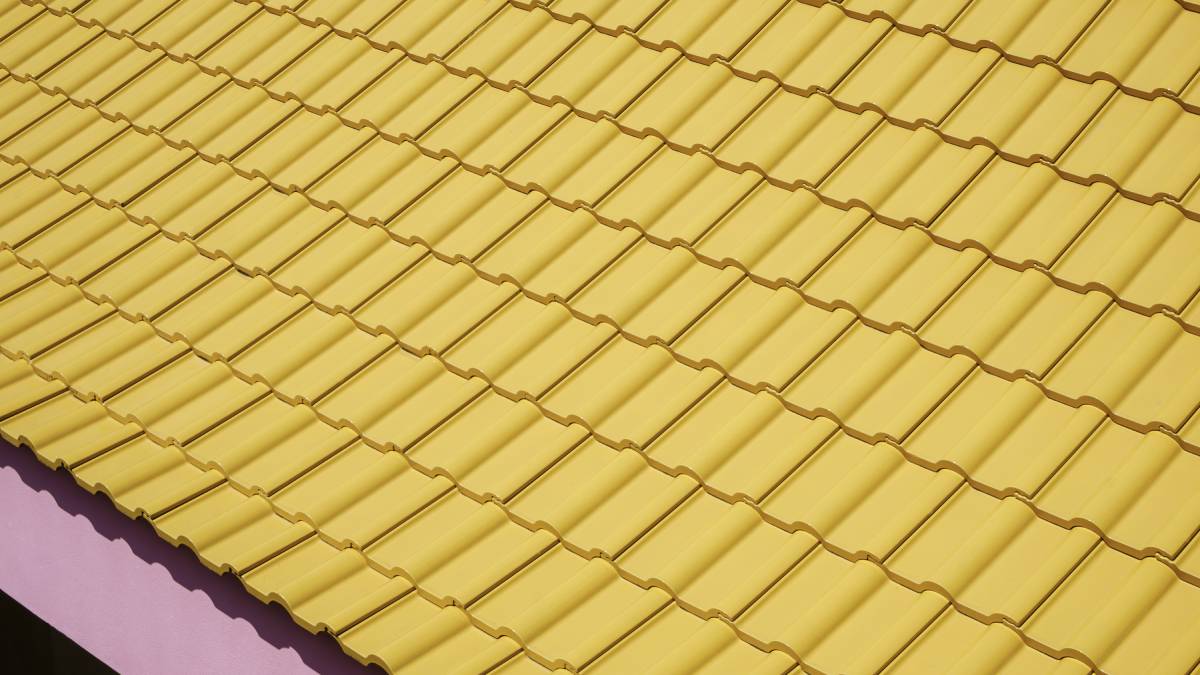
What are the 3 most common roofing tiles?
- Asphalt Shingles: Affordable and Easy to InstallAsphalt shingles are the most popular and widely used roofing material in many homes. They are known for their affordability and ease of installation. These shingles come in various styles and colors, allowing homeowners to personalize the look of their roofs. The versatility of asphalt shingles makes them a practical choice for a wide range of architectural styles.
One of the key benefits of asphalt shingles is their cost-effectiveness. They provide a durable and weather-resistant roofing solution without breaking the bank. Installation is typically straightforward, making it a quicker process compared to some other roofing materials. While asphalt shingles may have a slightly shorter lifespan compared to some premium options, they still offer reliable performance.
- Concrete Tiles: Durable and Fire-ResistantConcrete tiles are another popular choice for roofing, known for their durability and resistance to fire and insects. These tiles come in various shapes and styles, providing homeowners with flexibility in design. The durability of concrete tiles means they can withstand harsh weather conditions and maintain their appearance over an extended period.
One notable advantage of concrete tiles is their resistance to fire, making them a safe choice for homes. They are also less susceptible to insect damage compared to some other materials. While concrete tiles may be heavier than asphalt shingles, they offer excellent longevity and require minimal maintenance, making them a practical option for many homeowners.
- Clay Tiles: Timeless and Aesthetically PleasingClay tiles have been used for centuries and are known for their timeless and distinctive appearance. These tiles typically have a reddish-brown color and can add a touch of elegance to a home. Beyond their aesthetic appeal, clay tiles are durable and offer excellent thermal performance, helping to regulate temperature in the home.
While clay tiles may be more expensive than some other options, their longevity and classic look make them a preferred choice for those seeking a traditional and enduring roofing solution. It’s important to note that clay tiles can be heavier, so homeowners should ensure that their roof structure can support the added weight.
In conclusion, the three most common roofing tiles – asphalt shingles, concrete tiles, and clay tiles – each have distinct qualities that cater to different homeowner preferences and priorities. Asphalt shingles are budget-friendly and easy to install, concrete tiles are durable and fire-resistant, and clay tiles provide a timeless and aesthetically pleasing option. When deciding on the best roofing material for your home, consider factors such as budget, climate, and desired aesthetic to make an informed choice that meets your unique needs.
What roof tiles last the longest?
- Concrete Tiles: Durable and Low-MaintenanceConcrete tiles are renowned for their longevity and ability to withstand various weather conditions. Made from a mixture of cement and sand, concrete tiles are highly durable and can resist fire, insects, and harsh climates. They have a robust structure that contributes to their long lifespan.
One of the advantages of concrete tiles is their low-maintenance nature. They require minimal upkeep over the years, making them a practical choice for homeowners seeking a durable and hassle-free roofing option. With proper installation and care, concrete tiles can last for several decades, providing reliable protection for your home.
- Metal Roofing: Long-Lasting and Low-MaintenanceMetal roofing is known for its impressive longevity and resistance to various elements. Typically made from steel, aluminum, or copper, metal roofs can withstand severe weather conditions, including heavy rain, snow, and high winds. They are also resistant to fire and insect damage.
One of the key benefits of metal roofing is its low-maintenance nature. Metal roofs do not rot, warp, or crack, and they are less susceptible to issues like mold and mildew. With proper installation and occasional inspections, a metal roof can last 50 years or more, making it a durable and long-lasting choice.
- Clay Tiles: Timeless and EnduringClay tiles have a history of enduring for centuries, showcasing their remarkable longevity. Made from natural clay, these tiles are resistant to rot, insects, and fire. They also have excellent thermal performance, helping to regulate temperature in the home.
While clay tiles may be more expensive than some other options, their timeless aesthetic and longevity make them a valuable investment. With proper installation and care, clay tiles can last for over 100 years, making them a choice for homeowners looking for a roofing material with a truly enduring lifespan.
- Slate Roofing: Exceptionally DurableSlate roofing is often considered one of the most durable roofing materials available. It is a natural stone product that is resistant to fire, insects, and weathering. Slate tiles are incredibly dense and sturdy, providing exceptional longevity.
Slate roofs are known to last for well over a century, with some installations lasting several hundred years. While slate roofing may be more expensive upfront, its longevity and timeless appearance make it a popular choice for homeowners seeking a roof that will stand the test of time.
In conclusion, several roof tiles are known for their exceptional longevity, including concrete tiles, metal roofing, clay tiles, and slate roofing. Each material offers unique advantages, and the choice ultimately depends on factors such as budget, aesthetic preferences, and regional climate. Investing in a roof with a long lifespan not only provides peace of mind but also adds value to your home by ensuring durable and reliable protection for years to come.
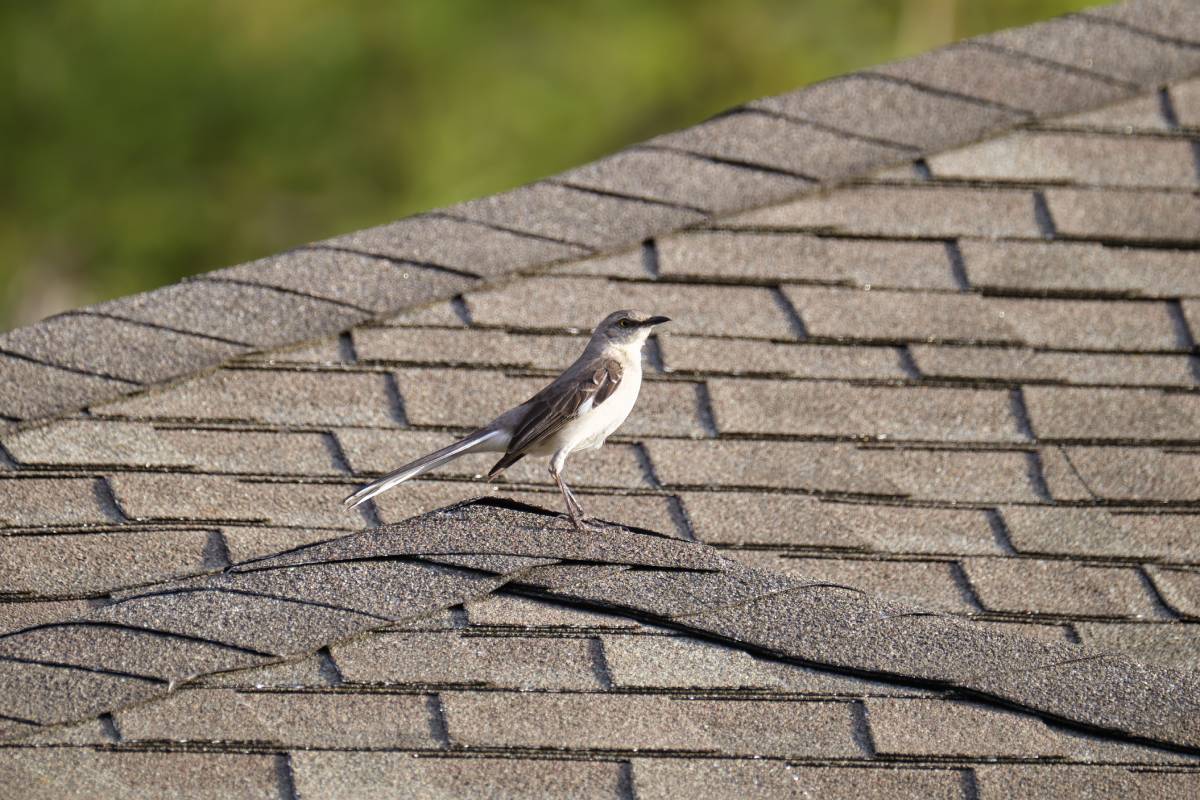
Conclusion:
In the quest for a long-lasting roofing solution, concrete tiles, metal roofing, and clay tiles emerge as standout options, each offering unique advantages. Concrete tiles showcase durability and low-maintenance appeal, while metal roofing combines longevity with resistance to various elements. Clay tiles, with their timeless aesthetic, provide enduring protection. Slate roofing, another durable contender, adds to the array of choices. As homeowners consider factors like budget, climate, and aesthetic preferences, they can find the perfect match for a roof that not only withstands the test of time but enhances the overall appeal and value of their homes. Making a wise investment in a durable roof ensures not only protection but also peace of mind for years to come.
